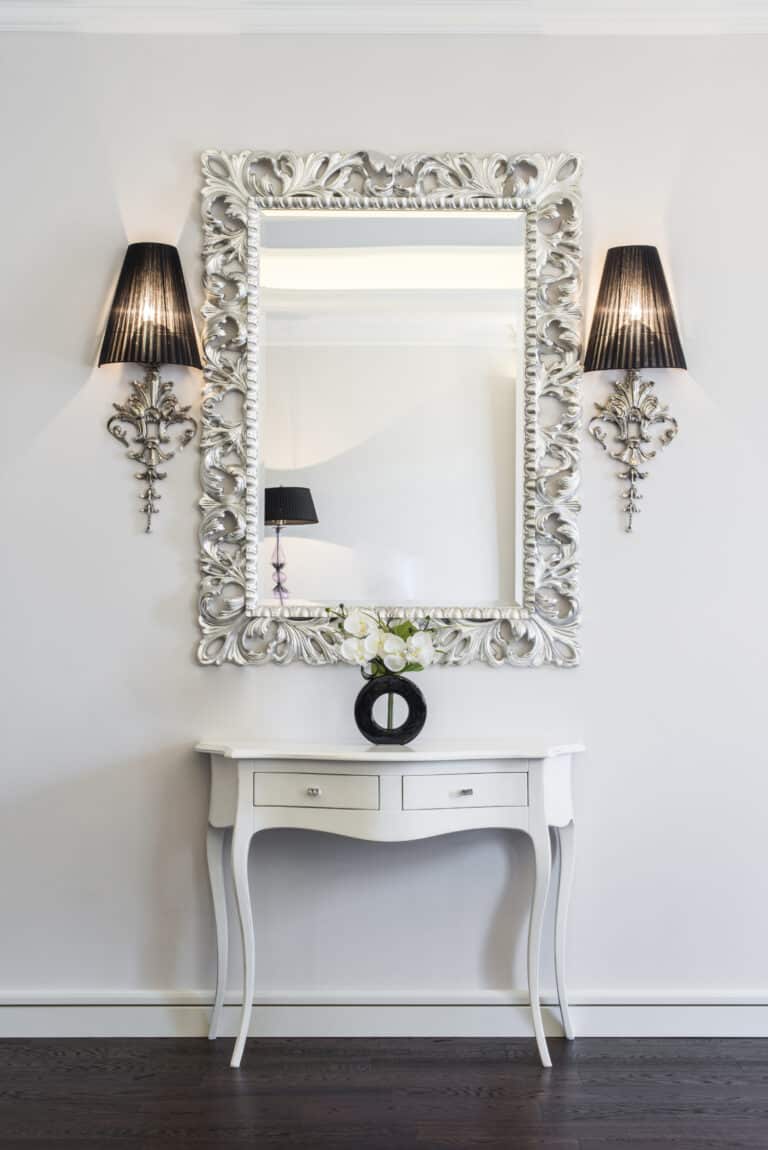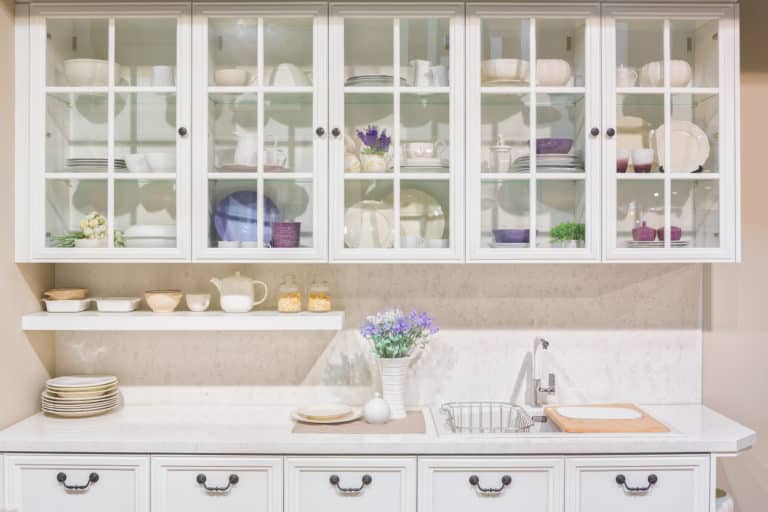If it’s time to replace the windows in your home, you have quite a few types of windows to consider. With so many window styles on the market, how can you possibly decide which one is right for your home?
While exploring types of windows, keep the following criteria in mind before making a final decision:
- How do you want the windows to open (if they open at all)?
- Do you plan to install screens?
- Are the windows easy to clean and reseal when needed?
- How secure are the windows, and how will they impact your home security?
In this article, we’ll explore seven types of windows for your home, consider the points above for each option, and help you decide which window type is right for you.
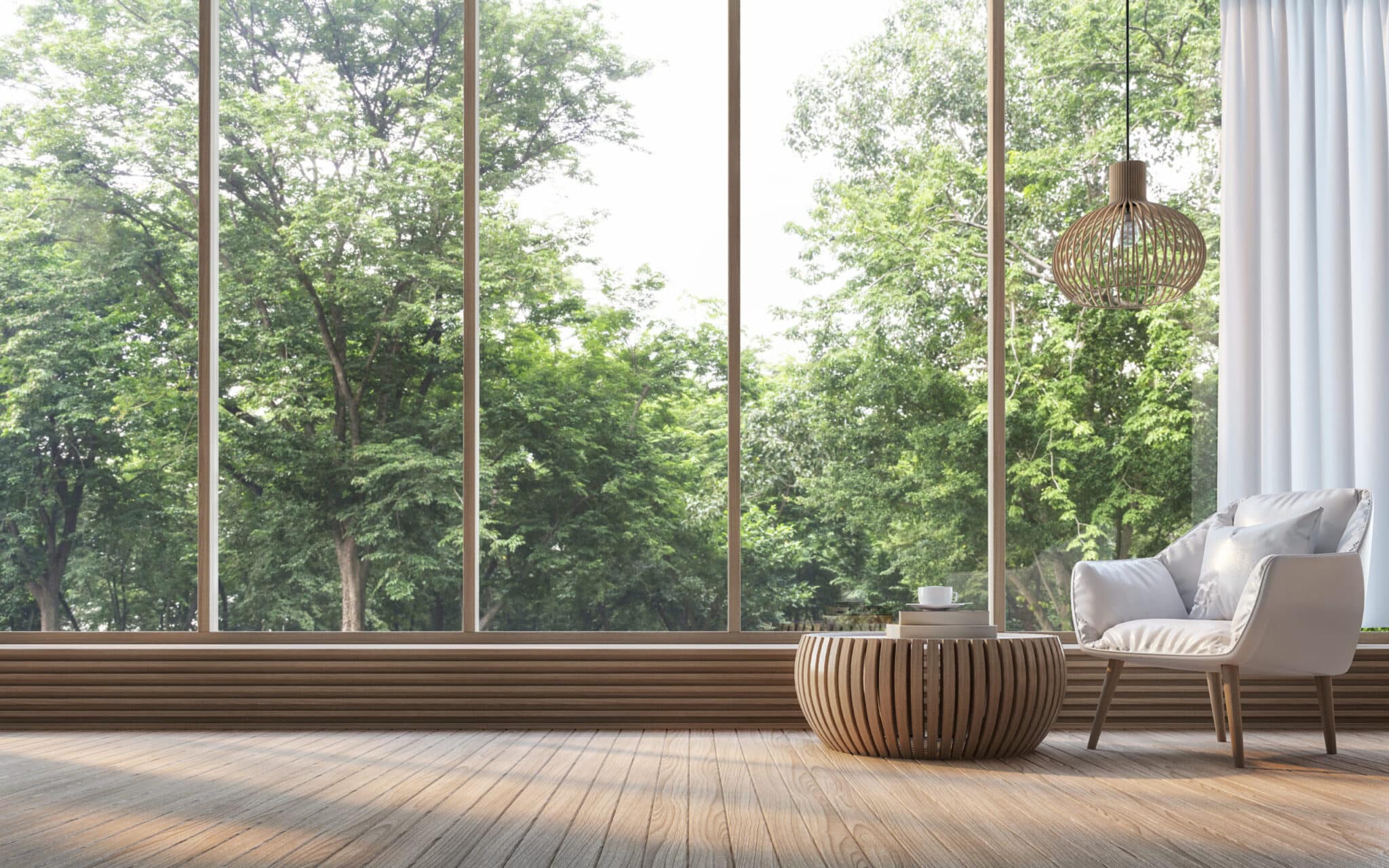
#1 Picture Windows
Picture windows are a popular choice for residential projects for a variety of reasons. These can include:
- They don’t open, but they’re typically large and can provide sweeping views of the outdoors.
- Since they don’t open, homeowners don’t have to worry about installing screens for pest prevention.
- They’re easy to clean since they don’t include any moving parts—they’re only constructed from a single sheet of glass and a frame.
- Since the windows don’t open, they don’t present an entrance option for burglars, pests, and water.
If you’re replacing a group of windows or have the exterior wall space to add a large window, a picture window could be an excellent option for your upcoming remodel or new construction project.
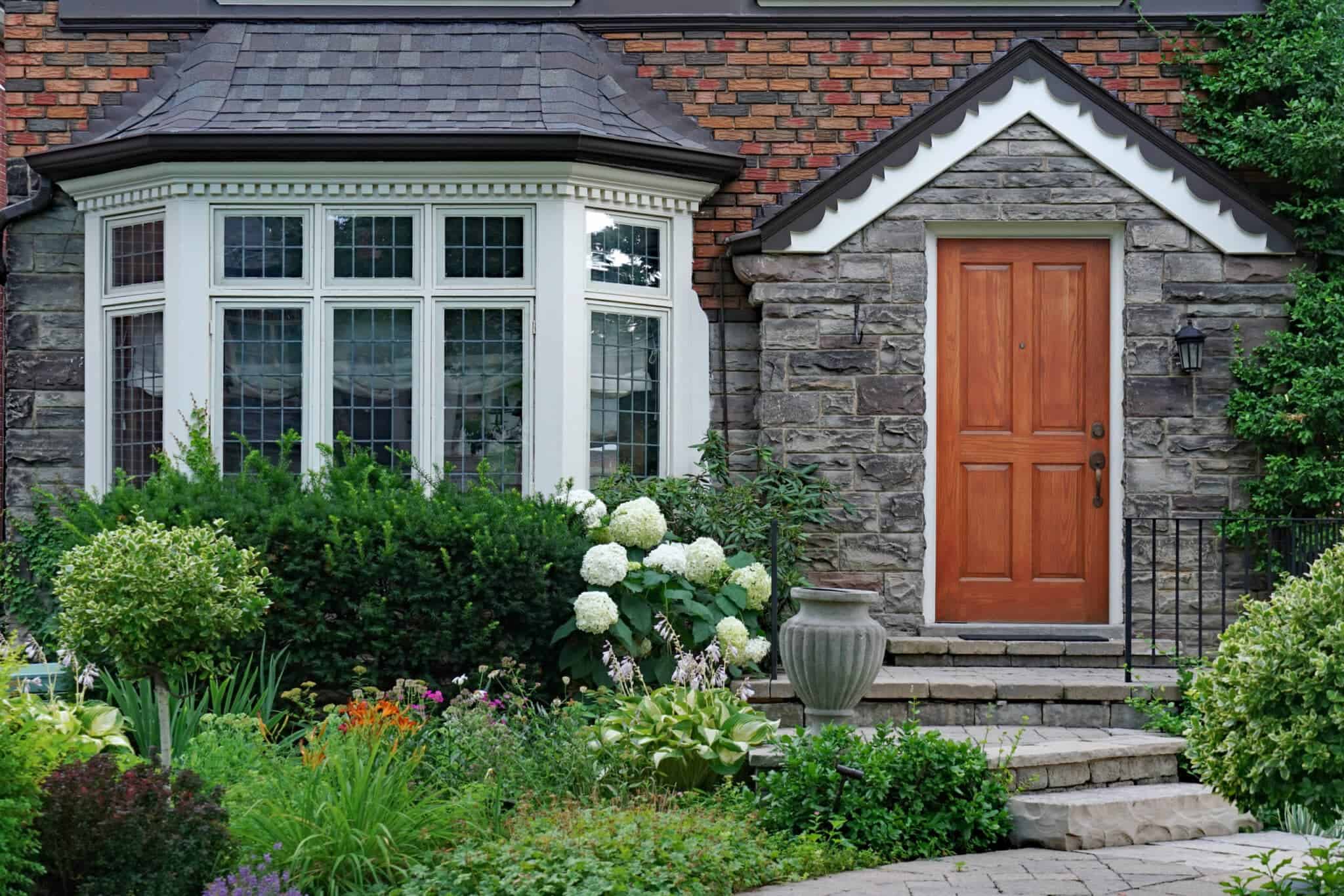
#2 Bay Windows
Like picture windows, bay windows can offer incredible views and provide a unique architectural feature to your home’s exterior footprint. They’re popular among new home builders and renovators alike because:
- They’re versatile—homeowners can use opening or non-opening windows depending on their preferences.
- Homeowners can choose whether or not they want to install screens. If they don’t want the windows to open, they can skip screening for pests and insects.
- While bay windows that open can change your home’s security profile, bay windows with stationary panes have similar security benefits as picture windows.
But, bay windows have a drawback—they’re not as easy to clean as a picture window. Since bay windows typically consist of three or more windows that create a trapezoid shape, dust and dirt can collect in the joints between the window frames.

#3 Awning Windows
Awning windows open outward and upward, creating a 45–90 degree angle with an exterior wall. Awning windows are versatile, offering many reasons to love them:
- They open, so they can provide additional airflow during temperate seasons.
- Homeowners can install screens if they wish or leave the windows unscreened.
- They’re easy to clean and reseal—to access the frame, just open the window.
However, since awning windows open, they present an entrance opportunity for pests and ne’er do wells. Homeowners who choose this type of window should consider adding a window alarm for additional home security.
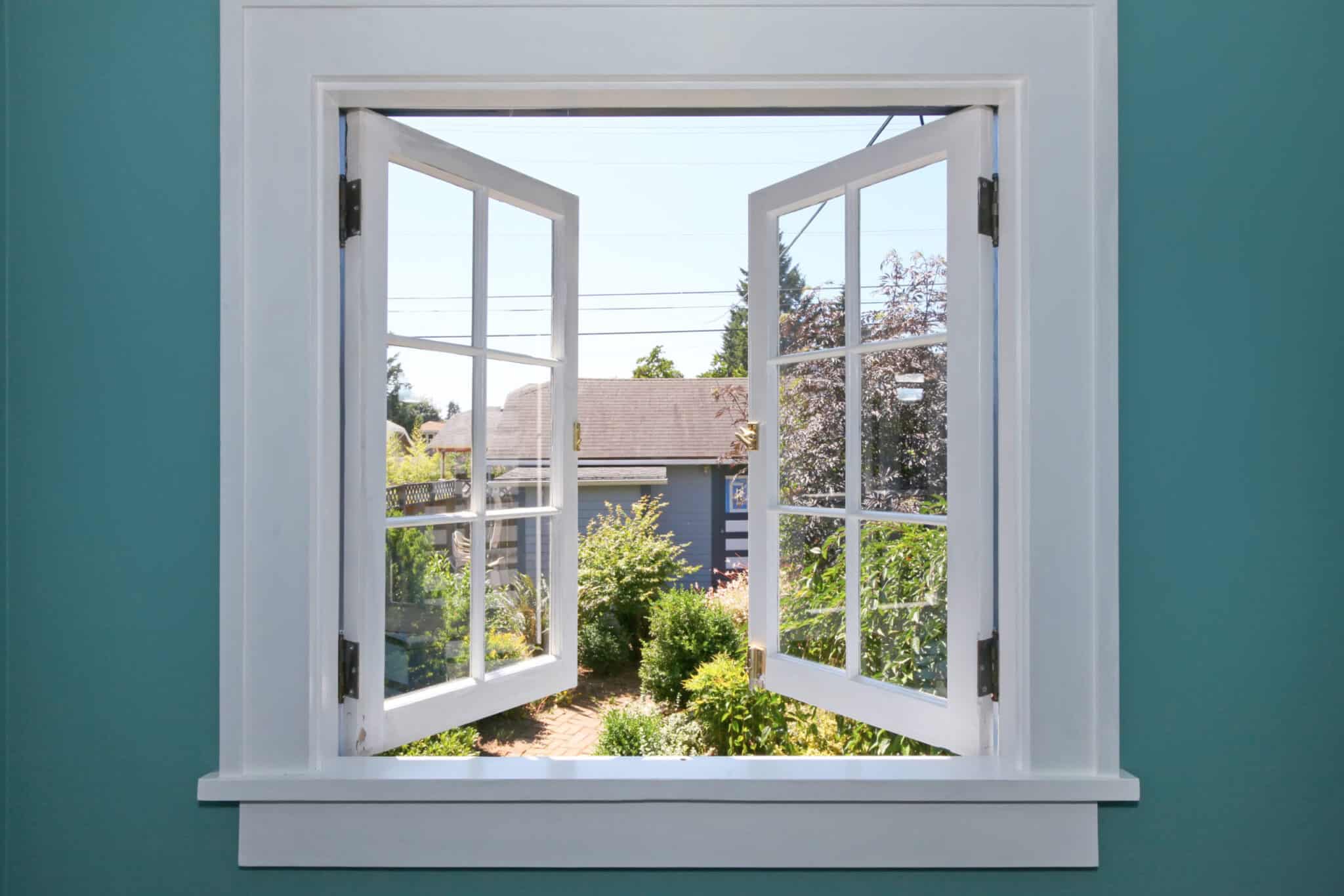
#4 Casement Windows
A casement window is a popular choice in cottage-style homes—they provide rustic appeal, they’re easy to use, and the frames can tie into both the interior and exterior design palettes.
These types of windows open on a swinging hinge and close with a latch on the opposite side of the hinge, just like a door. But, since the windows open outward, installing screens can be tricky. Homeowners can opt for screening as long as they choose a window with a hand crank for opening and closing.
When it comes to cleaning these windows or resealing the window frame, homeowners can simply open the windows to do so.
Since these windows open, and they’re not always screened, they may increase the likelihood of a break-in. However, since they latch from the inside, keeping the windows closed and using alarms can decrease security risks.
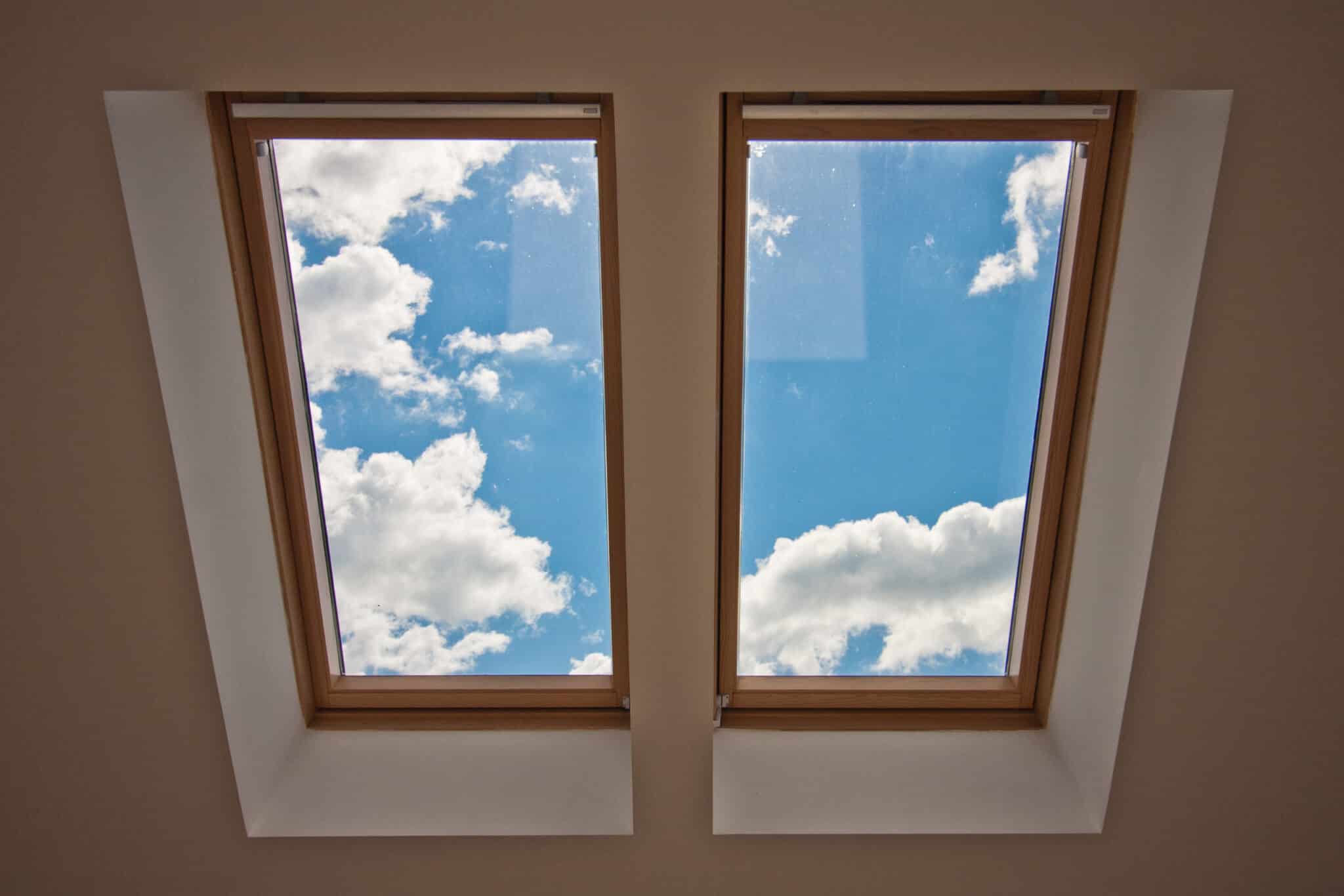
#5 Skylights
Skylights are an excellent tool for adding more natural light to a space. Whether a room’s exterior windows open to a shady area or the room presents electric lighting challenges, skylights allow sunlight to penetrate via glass panes in the ceiling.
They don’t typically open, so homes with skylights remain protected from pests and weather, and homeowners don’t have to worry about screening for pests. But, since they’re located on the ceiling, they can present cleaning and resealing challenges—homeowners must use a ladder to reach them from the inside, and exterior cleaning requires climbing onto the roof.
Fortunately, since burglars are unlikely to try to access your home from the roof, they don’t present a very significant security risk.
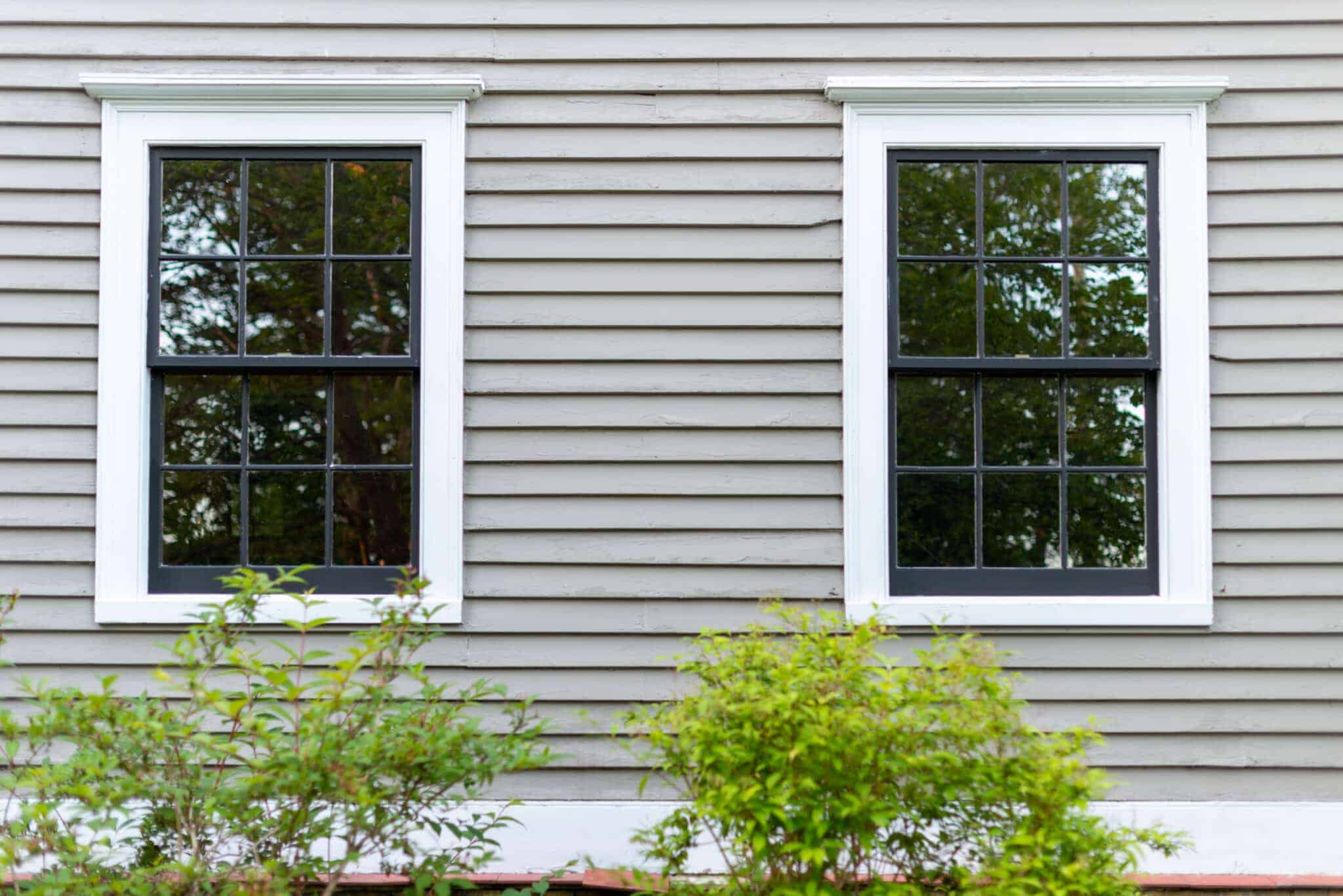
#6 Double-Hung Windows
Double-hung types of windows are some of the most common, and builders use them in nearly every new home project. A double-hung window is made of two panes of glass—the bottom pane opens vertically, overlapping with the top pane when the windows are open.
They’re a favorite for a variety of reasons:
- They open vertically, so they can significantly improve airflow during mild weather.
- They’re easy to screen since they don’t open outward.
- Since they’re flush with the exterior, they’re difficult to open from the outside.
However, there is a drawback—double-hung window frames have multiple pieces, so homeowners will have to stay diligent with cleaning and sealing.
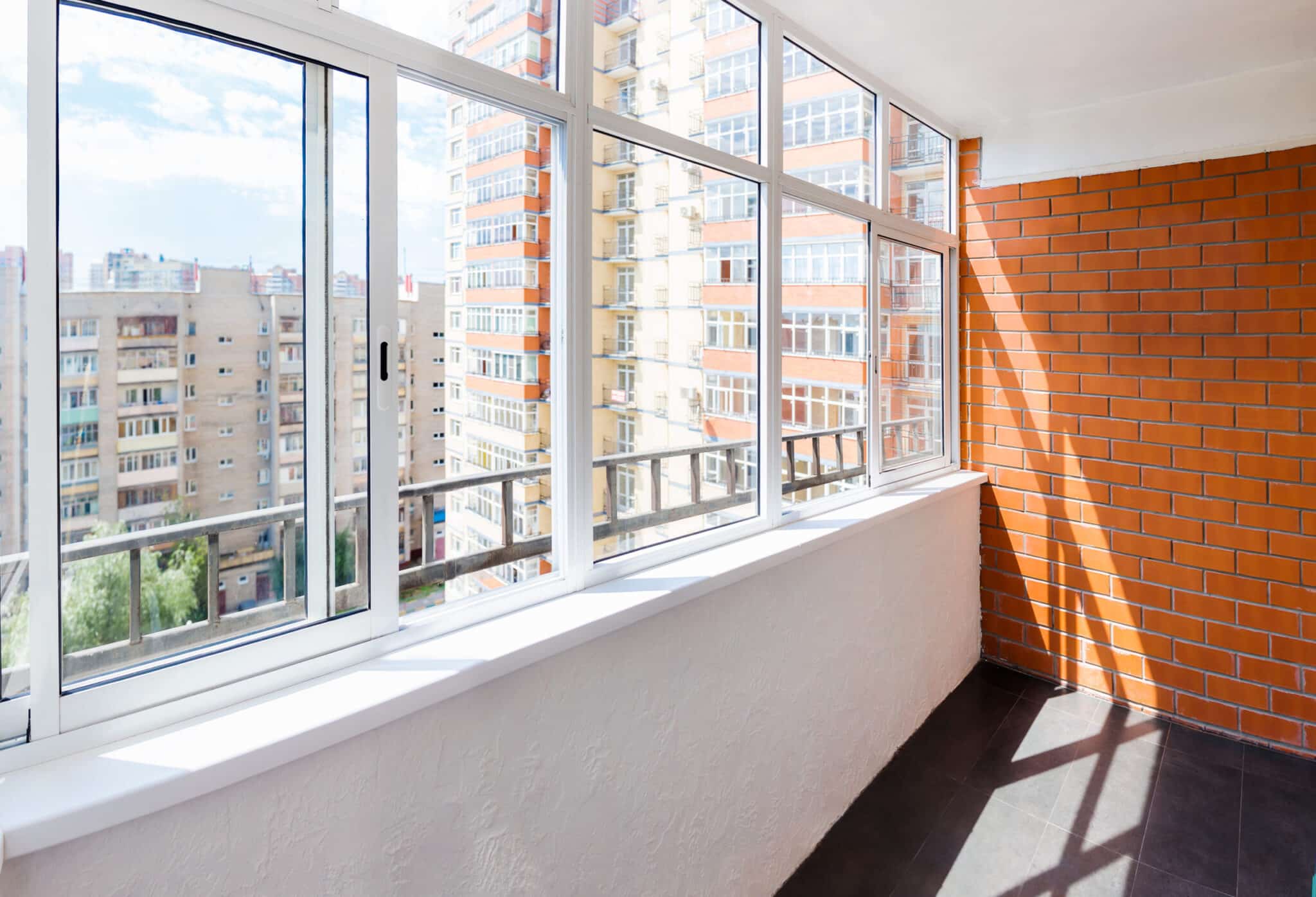
#7 Sliding Windows
A sliding window is similar to a double-hung window, but they open horizontally instead of vertically. A slider window also shares most of the benefits and drawbacks of its counterpart:
- They’re easy to open from the inside
- They’re an excellent option for homeowners who want to add screens
- They’re flush with the exterior, which can keep burglars out
But, dust is likely to gather in sliding windows’ multiple tracks, so they need to be cleaned regularly to maintain optimal weather sealing.
Can’t Decide Which Windows Are Right for You? Ask the Experts at Glass Guru
Each of these seven types of windows offers a unique profile of advantages and drawbacks. If you’re having a hard time choosing the right windows for your upcoming home improvement project, the experts at Glass Guru are here to help.
At Glass Guru, we’ve been installing and supplying windows in neighborhoods across the country for twenty years, and our team loves helping homeowners create the living spaces of their dreams. Plus, our blog is full of helpful tips for countless home improvement projects.
If you’re ready to start your next window project, contact us today for a free estimate.



